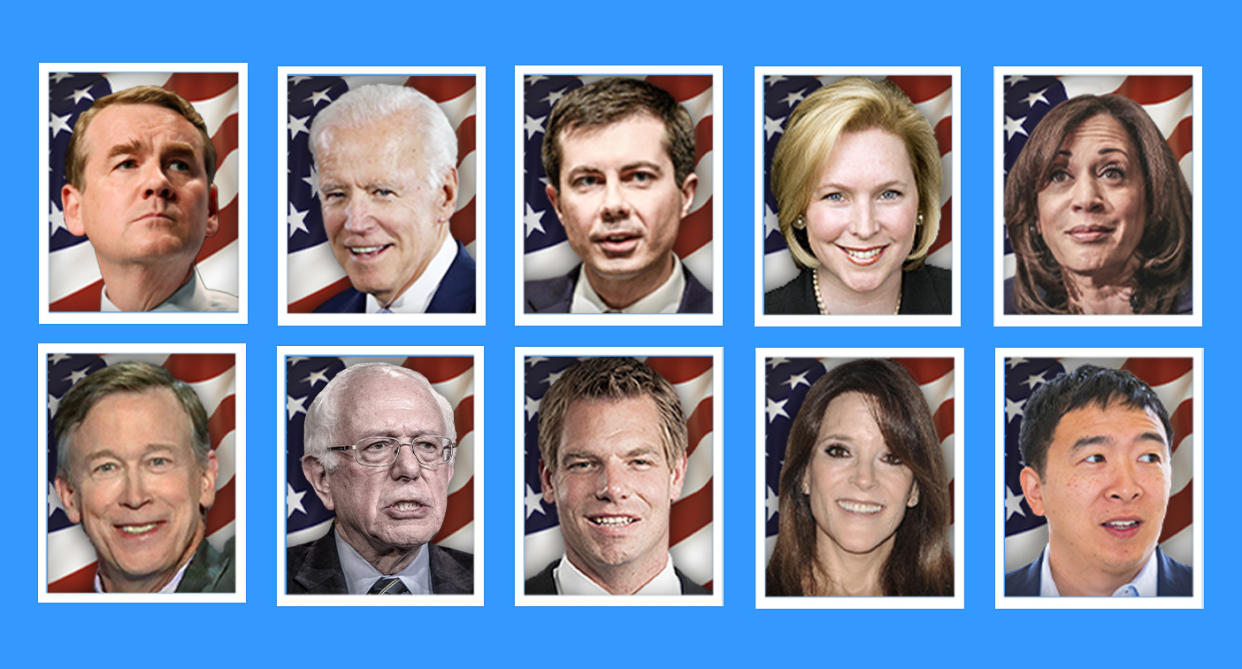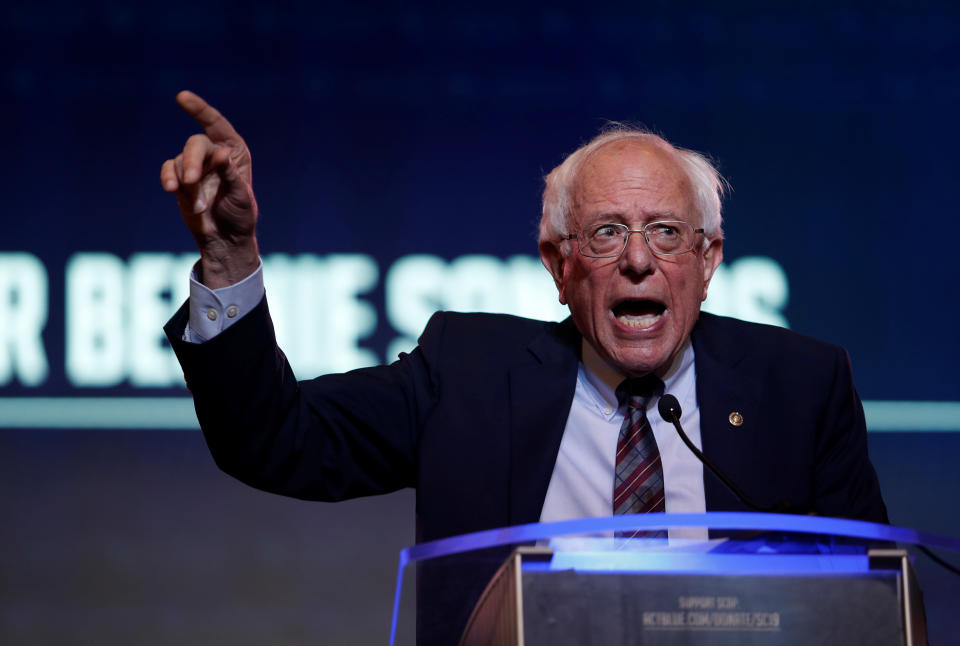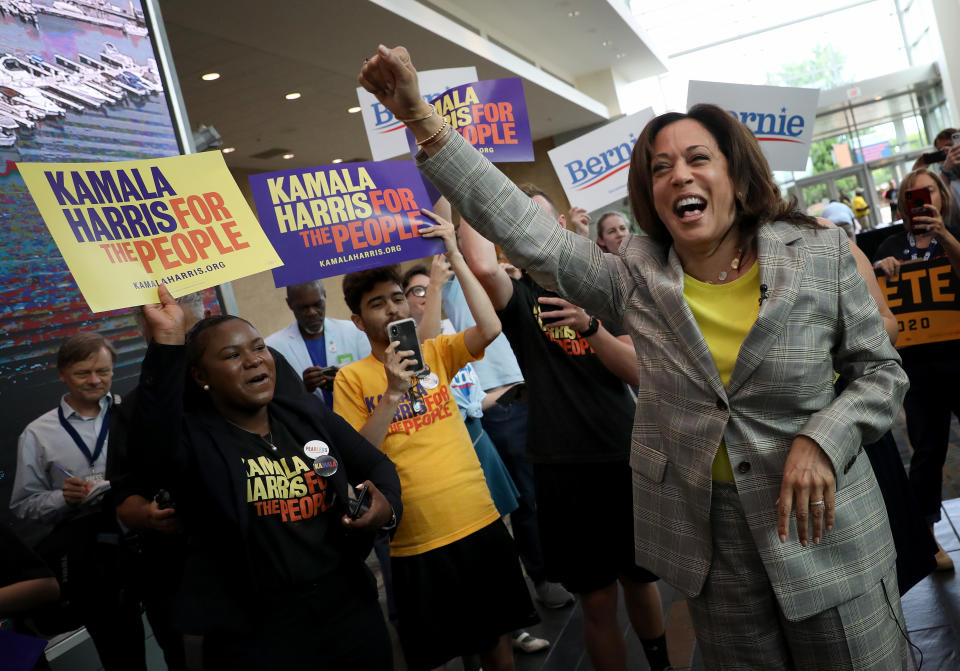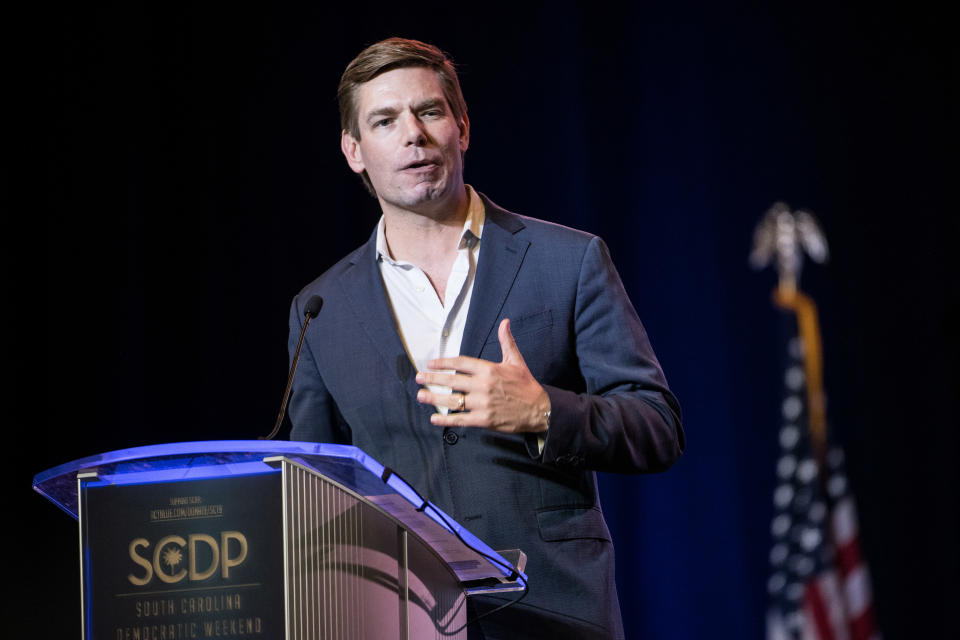Here's the one thing Democratic candidates want you to remember about them after tonight's debate

Many people are in full summer mode, juggling new camp and childcare routines, taking vacations, reading fiction and trying to tune out the news.
Only 1 out of 3 registered Democrats say they’ve been paying close attention to the primary so far, and that’s undoubtedly a higher percentage than among those who might vote but aren’t yet registered.
On Thursday, however, a substantial number of people will set relaxation aside for a moment and divert their gaze in the direction of the pulsating ulcer that is American politics, especially since this is the night when the most top-tier candidates will appear.
They will see a stage of 10 people who will get a total of between 10 and 15 minutes each to talk, with none of their moments in the spotlight lasting more than a minute or two.
Candidates who have a central unifying idea, a clear and compelling case for their candidacy, and who perform in a way that projects strength and optimism, will stand out. Often, the more crystalline a candidate’s core idea, the more winning the candidate’s aura.
Yahoo News asked all 10 campaigns a simple question: What's the one thing you want a casual observer to learn or remember about your candidate after they watch?
The two most unequivocal answers came from Vermont Sen. Bernie Sanders and California Sen. Kamala Harris.
Sanders wants voters to know that the Democratic Party has moved ideologically to where he’s always been, a senior campaign official said. The Sanders aide added that “he's the only candidate who believes we need to fundamentally change our political system.”
It is an argument that Sanders is authentic, that he doesn’t develop his positions based on polling, and that he is willing to take a stand for what he believes even if it’s not popular at first.

The Sanders camp is also staking a claim to be the true representative of the modern progressive wing of the Democratic Party. It’s an argument for legitimacy, and an attempt to keep moving Sanders away from the perception that he is a fringe candidate whose ideas won’t be accepted by a broader audience in a general election.
The Sanders message is also an assertion of leadership, that he is willing to do what is necessary even if it not always popular.
Former Vice President Joe Biden’s campaign didn’t respond to the question. He is undoubtedly a known quantity to most Americans and is the clear leader at this point in the primary, though it is still very early. Also, everyone knows what Biden’s core message is: He’s the Democrats’ best shot to beat Trump.
But Biden will be making a different kind of first impression Thursday night. There are serious questions about whether the 76-year-old is too out of touch with the modern party to last in this marathon primary, and whether he can win over a skeptical progressive base that embodies much of the energy on the left.
This will be Biden’s first time face to face with his rivals, and Americans will get a chance to see if he looks like he can stand up to the test.
That’s what made the response from Harris’s campaign interesting. The one thing the Harris campaign wants voters to know after Thursday night is that she is the “best candidate to prosecute the case against Trump,” said Harris spokesman Ian Sams.
That’s a direct claim by the Harris camp to the lane of the primary that Uncle Joe is currently dominating: the centrist moderate alternative to the progressive wing, over which Sanders and Sen. Elizabeth Warren of Massachusetts are battling.
And if Biden does fade, whether from death by a thousand cuts or some more sudden cause, Harris might be best situated to benefit and rise to the top. There are other moderate Democrats who are trying to elbow their way to the front of that centrist group: Sen. Amy Klobuchar of Minnesota, Sen. Cory Booker of New Jersey, Sen. Michael Bennet of Colorado, former Colorado Gov. John Hickenlooper and former Rep. John Delaney of Maryland among them.
But the Harris campaign’s “one thing” answer shows it is leaning into her credentials as a former prosecutor, which is decidedly an appeal more to the middle of the party where Biden is popular than it is an attempt to win over Sanders or Warren voters.

And Harris has the kind of charisma and personal profile as an African-American woman to win over large swaths from a wide variety of the Democratic Party’s biggest constituencies.
The answer from Bennet to the “one thing” question demonstrated his straightforward sincerity, but also his limitations as a national figure. For a senator known for his intellectual prowess and curiosity, Bennet’s answer was noteworthy mostly for how simple it was.
“I’d like to leave the impression that I’d be a good president and I’d tell the American people the truth,” Bennet told Yahoo News columnist Matt Bai.
A number of campaigns didn’t respond, and there were a few potential reasons for that.
They might not have a clear sense of what their core purpose or message is, or there might be disagreement among senior staff and the candidate about what it is. Potentially, it’s still being hashed out a day before the debate. These overarching statements that the campaigns were asked about may seem simple, but they dictate a lot about how candidates answer questions, what talking points they try to pivot to, and much more.
The campaigns also might not have responded because they don’t want other campaigns to know their main objective of the night. That might say something about the candidates themselves, and their approach to how they want to engage and combat their foes on the stage. Campaigns or candidates that don’t want to show their cards may be unsure of how others will try to undermine them, or not confident enough in whether it’s the core message they’ll go with long-term. They may be road-testing it tonight but may be open to other core messages.
That’s what makes it noteworthy that Sanders and Harris had no hesitation in sharing theirs. It’s a sign of confidence. One of Sanders’s most notable qualities as a candidate is his sense of certainty about who he is and what he stands for. It’s what made him so appealing in 2016 to many Democratic primary voters who found his candidacy more convincing than Hillary Clinton’s.
And then a third reason for a nonresponse could have been that the campaign is too small or unorganized to come up with a response, or that it believes a response to a story like this just isn’t a priority.
One campaign also provided two different answers to the same question. Rep. Eric Swalwell of California told Yahoo News on Twitter that he was focused on identifying with working class voters.

“I hope they learn that I know why they work hard and what they expect it to add up to. I’m the son of a cop and first in my family to go to college. I benefited from a promise of work hard and do better. But I see the people who haven’t. I’m running for them,” Swalwell said.
Meanwhile, a Swalwell spokeswoman relayed a focus on generational change.
“Rep. Swalwell has a blend of youth and experience that distinguishes him from the rest of the field. Voters are looking for new energy and new ideas. Rep. Swalwell embodies that and has since he was elected to Congress in 2012 after defeating a 40-year incumbent,” said Swalwell spokeswoman Cait McNamee.
And in the case of Pete Buttigieg, he and his campaign have been consumed for the last 10 days with trying to respond to the shooting of a black man by a white police officer in South Bend, Ind., where Buttigieg is mayor.
More than any other candidate appearing on the debate stage Thursday night, the 37-year-old political phenom will likely be dealing with strong emotions about the situation back home, combined with the natural jitters any person would experience stepping into the white-hot lights of a nationally televised debate for the first time.
Yahoo News sent Buttigieg’s campaign multiple messages, but did not hear back.
_____
Read more from Yahoo News:




